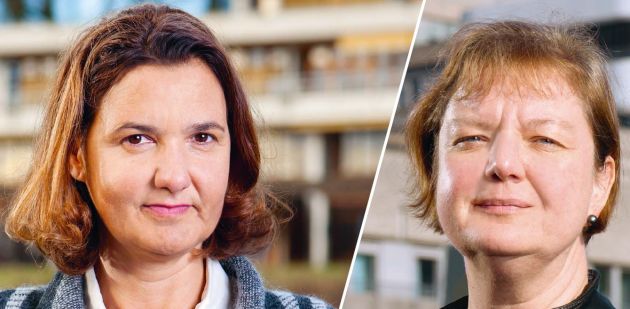
Sometimes the little things are all it takes: a word, attention paid to room temperature, sharing information, and so on. Whatever it may be, for a hospitalised patient, this “care — day to day, hour by hour, down to the most infinite detail — counts tremendously,” says Françoise Ninane, assistant director of patient care at Lausanne University Hospital (CHUV). What is very generally referred to as “patient care” is now the subject of extensive research, to the same degree as medicine and pharmacology.
In French-speaking Switzerland at the University Institute of Training and Research in Patient Care (“Institut universitaire de formation et de recherche en soins”, IUFRS) in Lausanne, nursing science has been developing since 2008 and collaborating with the CHUV. “This exchange gives students the chance to gain hands-on clinical experience,” says Anne-Sylvie Ramelet, full professor and director of the IUFRS since January 2015.
Several student research studies have resulted in improvements to hospital practices. When the Nursing Health Care Centre at Lausanne University Medical Polyclinic (“Policlinique Médicale Universitaire”) decided to review its health care programme for asylum seekers, it contacted IUFRS students. They examined the existing guidelines then came up with ideas to help the nursing team make choices relevant to the context. The collaboration between the two establishments has intensified since June 2014. Anne-Sylvie Ramelet and Françoise Ninane now co-chair the CHUV’s recently formed Research and Development Committee (“Commission de recherche et développement”, CRD) set up to promote synergies between the hospital and the IUFRS. As Anne-Sylvie Ramelet explains, “This will help academics keep up with the realities of patient care, produce research that meets people’s needs and make this research expertise more systematically available to the CHUV.”
Françoise Ninane can count on Anne-Sylvie Ramelet to “translate a clinical concern into a scientifically provable research topic”. And likewise, Ms Ramelet considers the associate director of patient care the ideal ally in wading through the maze of the hospital. “Françoise perfectly understands the institution and how it works. She gives me precious advice and immediately tells me who to go see,” says Anne-Sylvie Ramelet. This is key as the CHUV has nearly 10,000 employees.
Like Françoise Ninane, whose career has mainly been dedicated to caring for children, Anne-Sylvie Ramelet is specialised in paediatrics. “We share the same formatting,” Françoise Ninane jokingly says. The CRD has not yet defined its research priorities, but both chairwomen mention pain management and caregivers as priority topics. These issues concern each department at the CHUV, from the emergency room to psychiatry
to surgery.